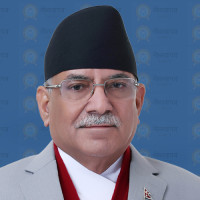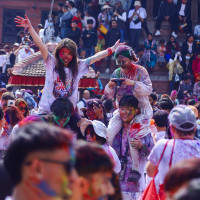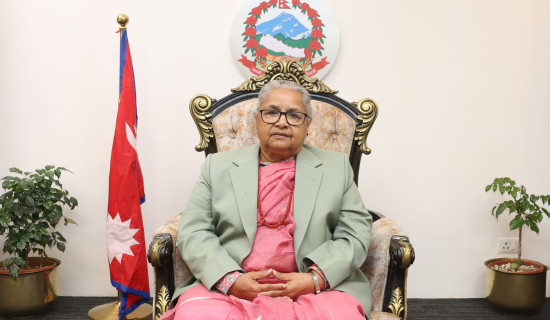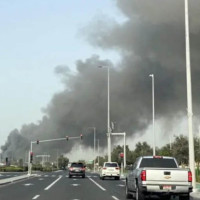- Monday, 2 March 2026
Achieve Prosperity Through Tourism
The term ‘tourism’ has become a buzzword that hangs on everyone's lips when we talk about Nepal’s potential, opportunities and strengths. Amidst immense potential, a question lies, “Have we done enough to have enough yield of tourism?” or “Have Nepal and Nepali benefited from tourism?” The answer would be a huge ‘NO’. It is because we often tend to give little priority to ‘tourism’ and have always failed to mainstream tourism. The structure of the current interim government also shows why we are still not prioritising it.
Tourism is a fragile industry as it gets hit the hardest whenever a crisis comes or there is a potential crisis. The decade-long insurgency, the year of the devastating earthquake, COVID-19 and the unprecedented rate of cancellation of bookings after the recent Gen Z movement show how vulnerable the industry is. On the brighter side, the industry does not take long to come back to normal. On the fifth day of the movement itself, the first announcement was made that Nepal is ready to welcome tourists.
The announcement might not be made by the government but it was made by the people, the private sector. Even the people working in the hotels did not take a second to share the promising words of ‘ready to welcome’ when the hotels were still burning. Therefore, we can claim that we are one of the most resilient tourism destinations and communities.
This year, World Tourism Day is being celebrated with the theme ‘Tourism and Sustainable Transformation’, for which Nepal is ready, as it has already shown glimpses of transformation. Nepal does not have an alternative to being sustainable and being transformative. For which, we need to ensure mainstreaming tourism. When the whole state is in transition and there is a dilemma in the leadership of the state, mainstreaming tourism might sound irrational.
However, Nepal’s tourism has always been led by the private sector and this time also, the same need to lead this journey of transition to transformation. The industry needs to ensure its presence everywhere, in international trade fairs, missions and digital media and has to show the world like nothing has happened here, or whatever has happened - happened for the better.
This World Tourism Day
Here, the industry, though, it is led by the private sector, it needs full support from the communities, as they are the host to these international guests and are the main messengers of the message we want to deliver to the world. I do not have a single per cent of doubt on these beautiful communities, as they have always been the main force to ensure the return of the maiden visitors to Nepal. If the private sector is the driver of the industry, communities are the engine that ensures the vehicle of tourism runs smoothly and takes the country to its final destination.
There are many areas to be considered for instant actions by the interim government, be it motivating the affected industry people or incentivising the new ideas and businesses in the tourism industry. The government must neutralise the red tape in the tourism industry, like easing the cinema shooting permissions for the international film makers, permitting drone operation, giving incentives to the big international events, promoting FDI, collaboration with international media houses, etc.
It is not only the state that has the responsibility, but we citizens also have it. We need to save the small and medium enterprises of tourism and hospitality that are on the verge of extinction and that were hugely hit by the movement but do not have records to claim the damage. We can be a relief to them by opting for local and national products and destinations during this festive season.
Dashain is a period of celebration where we gather to eat, play and roam around. Let’s eat in the local eatery centres. Let’s visit our own places during this Dashain. Let’s go to Pokhara even if we cannot financially afford to visit Paris. Let’s visit Bandipur, and even Berlin was always on our list. This is the time we can contribute to transforming the tourism industry sustainably during the transition phase. Let's visit the nation to make it prosperous.
















